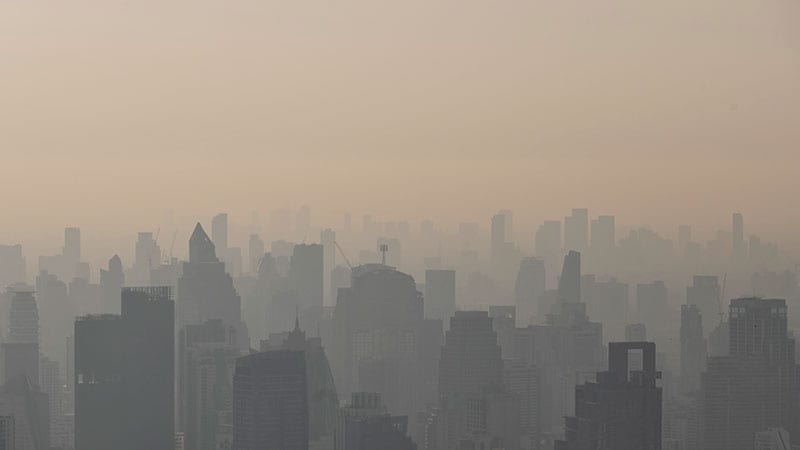Impact of Fine Particulate Matter on EGFR-Mutated Lung Cancers
Keskeiset käsitteet
Pollution, specifically fine particulate matter, significantly increases the risk of EGFR-mutated lung cancers.
Tiivistelmä
The content discusses the impact of pollution, particularly fine particulate matter (PM 2.5 and PM 10), on the prevalence of EGFR-mutated lung cancers. It highlights the findings of the KPB-2020 study presented at the 28th French Language Pulmonology Congress, emphasizing the increased risk for patients residing in polluted areas. The historical context of pollution and cancer, epidemiological studies linking pollution to lung cancer incidence and mortality, and the physiological mechanisms behind this relationship are explored. The study by Charles Swanton's team in 2023 marked a significant breakthrough in understanding the association between pollution exposure and EGFR-mutated lung cancers. New French data from the KPB-2020 cohort further confirms the correlation between exposure to pollutants and the risk of carrying an EGFR mutation.
Fine Particulate Matter Affects EGFR-Mutated Lung Cancers
Tilastot
Patients in polluted areas have a 50% increased risk of carrying an oncogenic EGFR mutation.
Increase in cancer incidence is estimated at 18% per 5 µg/m3 of PM 2.5 exposure.
Increase in mortality risk is around +15%-27% per 10 µg/m3 of PM 2.5 exposure.
Estimates suggest 200,000-300,000 lung cancer deaths per year worldwide due to pollution.
PM 2.5 is classified as a definite carcinogen by the World Health Organization.
Patients in heavily polluted areas have a 50% increased risk for EGFR-mutated lung cancer.
Risk for EGFR-mutated lung cancer is 15 times lower than that of active smoking.
Risk for EGFR-mutated lung cancer is increased by 1.39 for PM 10 and 1.63 for nitrogen dioxide.
Lainaukset
"This link is independent of smoking, as confirmed by cohorts of nonsmoker patients." - Alexis Cortot, MD
"These findings should encourage governments to continue efforts to reduce PM 2.5 emissions." - Alexis Cortot, MD
Tärkeimmät oivallukset
by Nathalie klo www.medscape.com 03-04-2024
https://www.medscape.com/viewarticle/fine-particulate-matter-affects-egfr-mutated-lung-cancers-2024a100044i
Syvällisempiä Kysymyksiä
How can individuals reduce their exposure to fine particulate matter in heavily polluted areas?
Individuals can reduce their exposure to fine particulate matter in heavily polluted areas by taking several proactive measures. These include staying indoors during times of high pollution, using air purifiers at home, wearing masks when outdoors, avoiding areas with heavy traffic, planting trees and greenery around living spaces to act as natural filters, and supporting policies that aim to reduce pollution levels. Additionally, individuals can opt for public transportation or carpooling to reduce emissions from vehicles and contribute to cleaner air.
What are the potential implications of these findings on public health policies worldwide?
The findings linking fine particulate matter to an increased risk of EGFR-mutated lung cancers have significant implications for public health policies worldwide. Governments may need to implement stricter regulations on emissions from industries and vehicles, invest in cleaner energy sources, promote green spaces in urban areas, and raise awareness about the health risks associated with pollution. Public health policies may also need to focus on vulnerable populations living in heavily polluted areas, such as children, the elderly, and individuals with preexisting health conditions, to mitigate the impact of pollution on their health.
How can the research on pollution and lung cancers contribute to broader environmental discussions?
Research on pollution and lung cancers can contribute to broader environmental discussions by highlighting the urgent need to address air quality issues globally. It underscores the interconnectedness of environmental factors and human health, emphasizing the importance of sustainable practices and policies to protect both. This research can serve as a catalyst for discussions on climate change, urban planning, transportation systems, and public health interventions that aim to create healthier and more sustainable environments for current and future generations.
0
